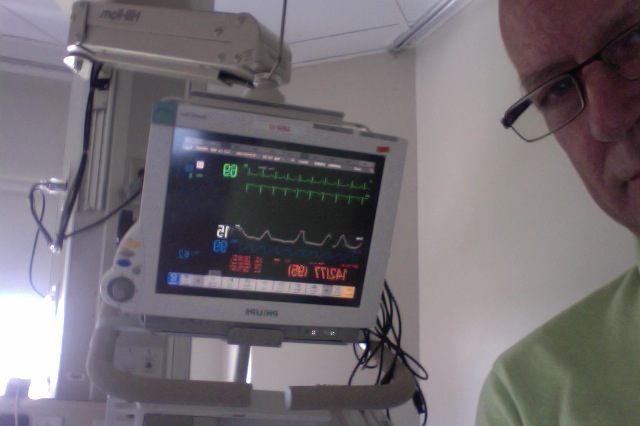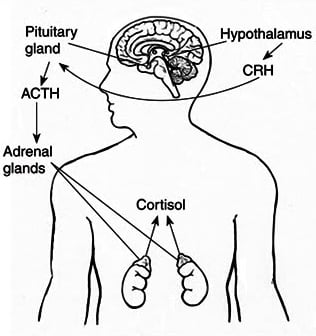Getting at the heart of your ailments seems the more impossible, since your recurring discomfort occurs throughout your body, especially in your neck/head region. Also, your moments of acute pain come and go randomly or remain with you constantly, a muted unease that flares intermittently. Occasionally, you find yourself inexplicably bedridden and/or lethargic, irritable and throbbing.
From the Desk of Dr. Karl R.O.S. Johnson, DC.....
Dr. Karl R.O.S. Johnson, DC
Recent Posts
The Connection Between Your Auto Accident And Thyroid Problems
Posted by Dr. Karl R.O.S. Johnson, DC on Thu, Oct 24, 2013
Topics: Hypothyroidism, chronic pain, thyroid, fatigue, neck pain, motor vehicle collision
Thyroid Poisons That Can Derail Your Wellness Efforts
Posted by Dr. Karl R.O.S. Johnson, DC on Thu, Oct 17, 2013
You've researched your symptoms and came to the conclusion you have low thyroid symptoms.
You even consulted your medical practitioner and he or she concurred and prescribed thyroid hormone replacement therapy. You were hopeful to finally regain your energy and your drive. The medication was supposed to help you with the brain fog, body aches, neck pain or migraines. Unfortunatley, these and other symptoms were with you more often that you cared to admit over the last few years.
Topics: Hypothyroidism, thyroid, migraine, neck pain, obesogen, headaches
Recurrent Body Pain Can Be Solved Naturally
Posted by Dr. Karl R.O.S. Johnson, DC on Thu, Oct 10, 2013
Recurrent body pain is not an inescapable life sentence. Like a lot of people, perhaps you have struggled with such pain for years despite having seen doctors, taken various medicine cocktails, and participated in some form of physical therapy.
Topics: Hypothyroidism, chronic pain, Johnson Neuro-Metabolic Therapy, migraine, ATM2, neck pain, Nano, subclinical hypothyroidism
Causes of Migraine Headaches and What To Do About Them
Posted by Dr. Karl R.O.S. Johnson, DC on Wed, Sep 25, 2013
Close to 15% of the global population will experience migraines at some time or another. Despite decades of empirical and anecdotal evidence, studies and research, the exact causes of migraines are still unknown. Sufferers, or migrainers, are advised to avoid migraine triggers; those that are well documented. Other research suggests links between environment, genetics, diet, and hypothyroidism. Associated conditions and symptoms with one or all of the above include depression, anxiety and recurring/constant neck pain.
Topics: Hypothyroidism, gluten, thyroid, chiropractic, migraine, neck pain, NAET, headache, AcuGraph
How Statin Drugs Can Cause Inflammation, Depression and more
Posted by Dr. Karl R.O.S. Johnson, DC on Thu, Sep 19, 2013
The CoQ10-Statin Secret
By Ronald Grisanti D.C., D.A.B.C.O., D.A.C.B.N., M.S.The medical literature clearly shows that statin medications like Lipitor,Crestor, Zocor shut down the production of one of the most important nutrients in the body. And I am referring to Co-Enzyme Q10 (CoQ10).
Topics: inflammation, depression, Ubiquinone, Statin, Co-Q10, Cardiovascular, LDL, Hair Loss, Liver Disease
Say Goodbye To Chronic Painful Movement With The ATM2 and Laser
Posted by Dr. Karl R.O.S. Johnson, DC on Sun, Aug 04, 2013
So many patients with fibromyalgia, chronic thyroid conditions, disc herniations, sciatica, and chronic neck pain often find blessed relief with the help of a unique medical device named the ATM2 and Cold Laser.
At the time of writing this article, I am sitting in the surgical ICU at William Beaumont Hospital in Royal Oak, Michigan. My oldest son, Darren was in a bicycle accident the evening before. After his wounds heal and his facial fractures are surgically repaired and the injury to his neck is sufficiently stable, he will be a candidate for some chiropractic care and specialized neurological cranial work called Neuro-Cranial Integration. Combined with specialized nutritional help to aid in the healing of his soft tissues and brain, as well as prayers for healing from friends, family, patients and readers, we expect a positive outcome.
Topics: fibromyalgia, chronic pain, ATM2, Cold Laser, Scar Tissue, Fibrosis, Disc Herniation
Why Low Adrenal Function Can Mimic Hypothyroid Symptoms
Posted by Dr. Karl R.O.S. Johnson, DC on Thu, Jul 25, 2013
If you are like the many patients who visit a doctor, your chief complaint is fatigue and/or weight gain. Learn how you can regain your zest and improve your overall health and feel younger in the process!
I know in my practice, fatigue is often on of the most common health complaints. Of course fatigue is also one of the main symptoms of hypthyroidism as well. Having low energy robs you of your zest for living and you end up not participating in your once favorite activities. You feel like you are getting old. You don't need to accept this low energy as your new reality.
Topics: Hypothyroidism, fatigue, brain fog, depression, Adrenal, Anxiety, adrenal fatigue, hypoglycemia, hypoadrenia










